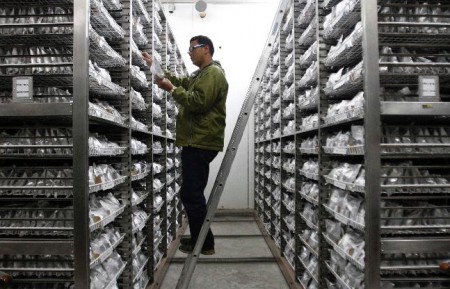Where’s my guide to the netherworld of genebank databases when I need him?
I need him to make a somewhat snarky point. A recent commenter objects to the characterisation of Kasalath, the “wild” rice that’s been in the news lately, as Indian.
Kasalat is actually a Bangladeshi variety not Indian. In Bangla it means Kacha Lota or green shoot. From time immemorial it has been grown in the eastern district of Sylhet of Bangladesh from where it might have gone to India…. [I]t is just plain wrong to describe it as an Indian variety.
But as Wikipedia tells us,
The history of Bangladesh as a nation state began in 1971, when it seceded from Pakistan. Prior to the creation of Pakistan in 1947, modern-day Bangladesh was part of ancient, classical, medieval and colonial India.
So when was Kasalath collected? Or, to put it another way, what was the name of the nation state in which the place that Kasalath has grown from time immemorial found itself at the time someone collected it?
That’s what databases are for, right? IRIS, The International Rice Information System, has 12 entries for entities called Kasalath, three of them at IRRI and one in India. I couldn’t find anything as dull as an accession date for any of them. IRIS is a bit unfriendly, although thanks to it I did also discover that Kasalath is one of about 400 varieties selected to form a Rice Diversity Panel. Until Beatrice returns from his travels, or logs on, that’s the best I can do.
And the point, of course, is to suggest that the very idea of a variety grown since time immemorial belonging to any Johnny-come-lately nation state is, alas, a cruel joke.
